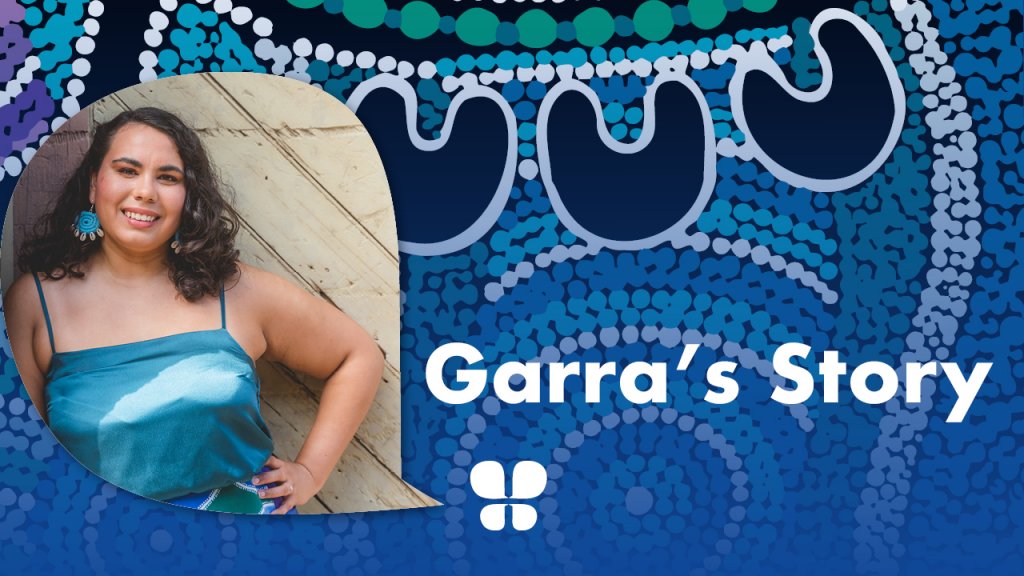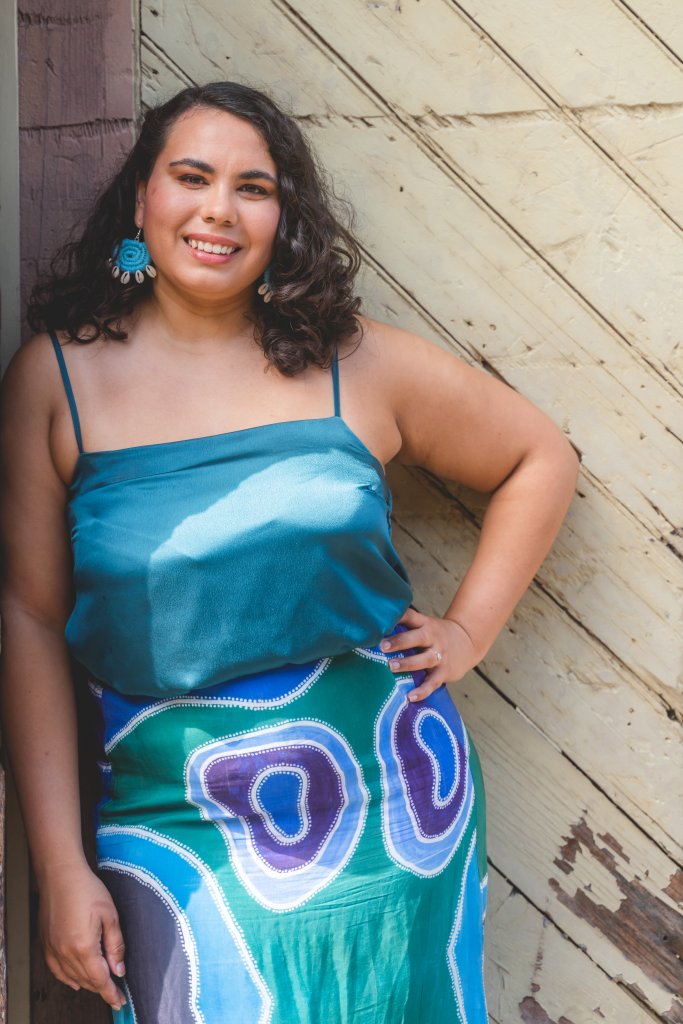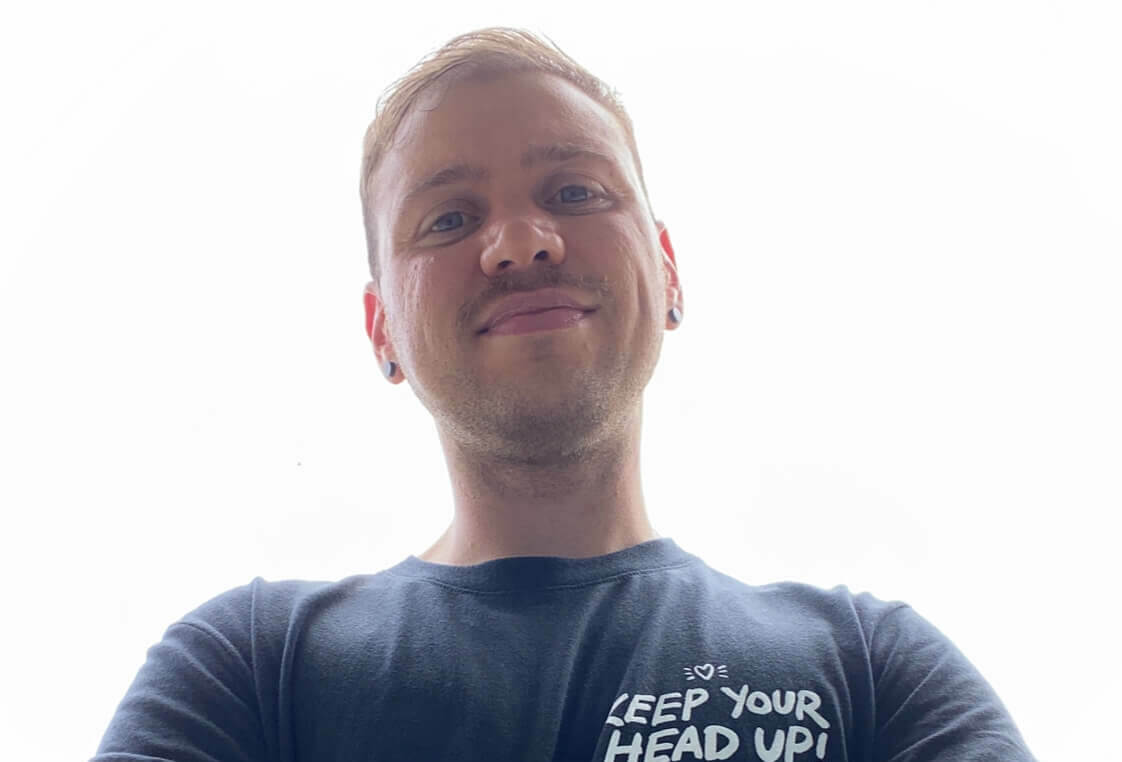Culturally safe support drastically needed for Aboriginal and Torres Strait Islander people experiencing eating disorders

For Garra Mundine, a proud Wiradjuri, Bundjulung, Kamilaroi and Yuin woman from Dubbo NSW, body image concerns were something that started when she left her community to attend school in Sydney.
Back home with her family and surrounded by culture, Garra never took much notice of her body image. However, at the age of 11 after moving to Sydney, she began to feel her body was different.
“In the city, I suddenly became a part of a very multicultural community. A lot of my friends were of Asian, Irish, and Italian heritage. As teenage girls, they naturally had skinny bodies that fit European beauty standards. I noticed that my body wasn’t like that and I really struggled because I wanted to fit in.”
According to national eating disorder and body image charity the Butterfly Foundation, almost one in ten Australians will at some stage experience an eating disorder. Aboriginal and Torres Strait Islander people experience body image issues at similar rates to other people in Australia, with 30% of young people—including Aboriginal and Torres Strait Islander young people – saying they’re very concerned about their body image.
 After her move, Garra found herself becoming incredibly self-conscious. “I was always trying to find ways to lose weight and fit in to smaller sizes. The fashion at the time was all about crop tops and looking small. And I just wasn’t that girl. I would specifically buy clothes that were too small, and I would try and get myself as small as possible to fit these beauty standards.”
After her move, Garra found herself becoming incredibly self-conscious. “I was always trying to find ways to lose weight and fit in to smaller sizes. The fashion at the time was all about crop tops and looking small. And I just wasn’t that girl. I would specifically buy clothes that were too small, and I would try and get myself as small as possible to fit these beauty standards.”
“I would often just stand in front of the mirror for hours critiquing every part of my body just because everything felt wrong, nothing looked right.”
Garra’s physical and mental wellbeing began to suffer, and without realising what was happening, she began to develop an eating disorder.
“Eating disorders were never really spoken about in my community. So, I very much felt like I was on my own. I knew my Mum was concerned and she had spoken to family members about the fact that I was losing a lot of weight and becoming very thin.”
But it was clear that in Garra’s community, “health was less of a priority than looking good.”
“Most of the time people would say ‘Wow, you look amazing! You’re so thin. You look great’. It was never, ‘You really need to eat something and take care of yourself’.”
Something was wrong, but Garra felt that no one, especially her family or friends, would take her problem seriously and that it was most likely an issue she would have to deal with on her own. A sentiment that Butterfly Foundation says is all too common in people experiencing an eating disorder.
When she spoke to her friends, they were sympathetic, but Garra still felt that she was ‘different’ because her body didn’t fit the European beauty standards many of her friends did.
And with her family experiencing a challenging time at the height of her eating disorder and feeling as though they didn’t have the time or energy to help, Garra continued to suffer in silence.
It was only when she escaped the city and moved to Canberra for university that she started to get better. “Starting fresh really helped me. I went on a journey of finding things that were healthy for me; exercising more and learning how to eat healthy.”
But it was finding friends that understood her and that she could identify with, that made the world of difference to her recovery.
“My friends at university, who all come from Aboriginal and Torres Strait Islander backgrounds, understood we didn’t fit European beauty standards, and that even Aboriginal and Torres Strait Islander peoples, within ourselves, have very different body types.”
“I really began to accept myself. I stopped dying my hair blonde and straightening it every day. I started to embrace my curves and find outfits that suited my body type, and learnt to accept me for who I am.”
That’s not to say there haven’t been bumps in the road.
After Garra’s Mum was tragically diagnosed with cancer twice, she experienced a differing eating disorder presentation and found herself on the other end of the spectrum and finding comfort in food.
Garra also experienced significant barriers in her journey to receiving support. “I couldn’t find anything. I went to an Aboriginal health service, but the doctor wasn’t Aboriginal or Torres Strait Islander, and I felt that she was not empathetic to my situation at all. That experience definitely scared me away from looking for professional help.”
“If there was support that was culturally safe at the time, I would have definitely taken it up.”
Garra doesn’t let this define her story of recovery though. She is now on a journey to finding a healthy balance and receiving professional support from a doctor who has been ‘amazingly empathetic’ to her situation.
“Recovery is an ongoing thing that you need to work at every single day. But there is a light at the end of the tunnel, it does get easier and it’s all about embracing yourself. Learning that you’re not going to fit into this perfect box and you’re not meant to. You’ve just got to be you.”
Garra, along with Felicia Foxx, is also the face of the Butterfly Foundation’s new #EveryBODYIsDeadly campaign, that encourages mob to have a yarn about body image and reach out to Butterfly for culturally safe support.
“My message to other Aboriginal and Torres Strait Islander people that are going through similar feelings and situations, is to find support in each other and to talk about it. Don’t push it under the rug. We all are facing these issues and there’s a reason behind it; we’re not meant to fit into the beauty standards that society pushes onto us. We really need to embrace each other.”
Watch Garra’s story here.
#EveryBODYisDeadly was created with the help of Aboriginal and Torres Strait Islander health workers and people with lived experience. Butterfly’s Helpline counsellors, and Butterfly as a whole, continue to have cultural awareness training and can identify culturally safe referral pathways to support people at risk or experiencing an eating disorder. The Butterfly National Helpline is free, confidential, open seven days a week, 8am-midnight AEST, and can be reached on 1800 33 4673, via webchat or email support@butterfly.org.au
To find out more about #EveryBODYisDeadly head to: /get-involved/campaigns/everybodyisdeadly/






















